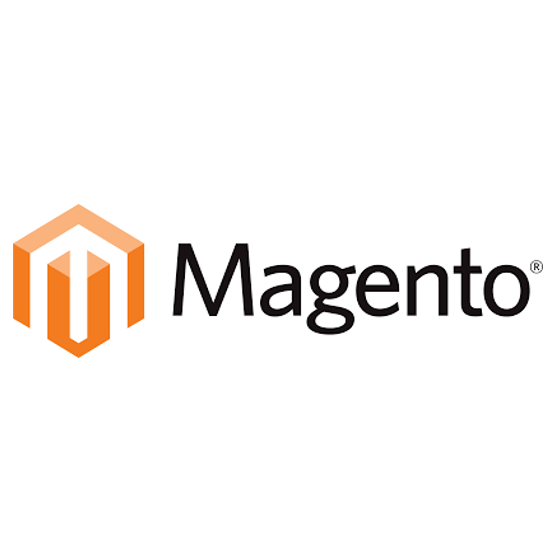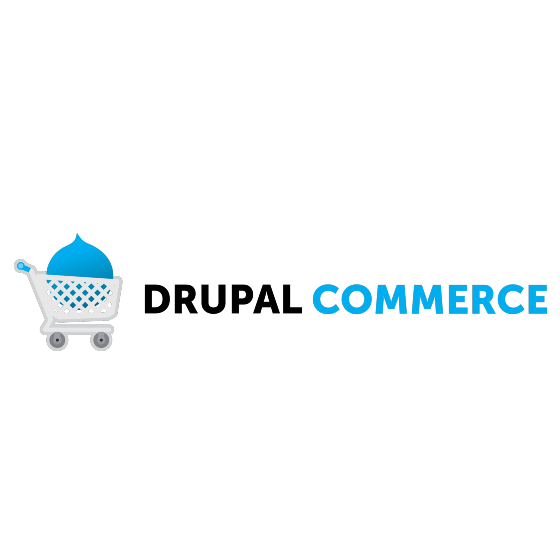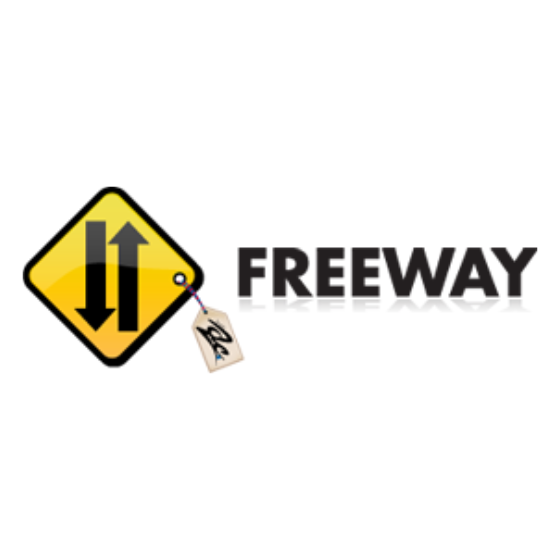10 Best Open Source Ecommerce Platforms List
Here's my pick of the 10 best software from the 20 tools reviewed.
Our one-on-one guidance will help you find the perfect fit.
With so many different open source ecommerce platforms available, figuring out which is right for you is tough. You know you want a customizable and flexible solution for creating and managing online stores—but now need to figure out which tool is best. I've got you! In this post, I'll help make your choice easy, sharing my personal experiences using dozens of different ecommerce platforms with online stores of all sizes, with my picks of the best open source ecommerce platforms overall.
What is an Open Source Ecommerce Platform?
Open source ecommerce platforms are software solutions that allow businesses to build and manage online stores with the freedom to customize and modify the platform to their specific needs. These platforms are built on source code that is freely available for anyone to use, modify, and distribute. This open nature enables a high degree of customization, making it possible for businesses to tailor the platform to their unique requirements, whether it's for design, functionality, or integration with other systems.
Open source ecommerce solutions are particularly favored by businesses looking for a cost-effective, flexible solution that can grow and evolve with their needs, supported by a community of developers who continuously contribute to the platform's development and improvement.
Overviews Of The 10 Best Open Source Ecommerce Platforms
Here’s a brief description of each of the 20 best open source eCommerce platforms on my list showing what it does best, plus screenshots to showcase some of the features.
Kartopia offers an ecommerce platform solution for B2B and B2C retail. Its modular build can be leveraged to offer higher levels of customizations via an imaginative level of customer experience with targeted personalizations. The product easily integrates with your existing IT infrastructure.
It offers a single view of customers, inventory, and orders, along with flexible order fulfillment to suit custom delivery models. Serving different geographies, Kartopia comes with multi-country, multi-currency, and multilingual features. It also has order management features with complete order fulfillment functionality. This can be very useful for your ecommerce store.
Kartopia smoothly integrates with third-party ERP, payments, logistics, marketing, and analytics systems.
This open-source platform is built on Ruby on Rails. This gives you the advantage of managing changes easily and leveraging flexibility. In terms of security, it has automated security fixes, a clear disclosure policy, and strict code reviews. The product comes with a stable API and easy extensibility.
Solidus integrates smoothly with PayPal, Stripe, Chargebee, and TransferWise (Cha-Ching!). It also integrates with TaxCloud, AngularSpree, Sentry, and other related business apps.
Support is available via documentation and an active community on Stack Overflow. There is also a Slack community that you can join.
Running on headless ecommerce technology, Broadleaf’s multi-site solution uses a microservice-based framework to provide clients the ability to manage their data and experience. This means that aspects like performance, privacy concerns, and infrastructure costs are catered by individual microservices.
These microservices are separated from other solution components. You can combine an ‘n’ number of Broadleaf microservices into a single container and database. Alternatively, you can decompose services into their bounded text. These modular features provide a lot of deployment flexibility and are great for scalability.
Its ecommerce functionality helps support B2C, B2B, multi-tenant, multi-site, and marketplace focused-needs. In terms of customization, it comes with the same high-level of total customization that comes with platforms running on a headless commerce engine. Broadleaf integrates with WordPress, Magento, Django CMS, Zendesk, Zapier, and other mainstream eCommerce apps.
Trusted by pop culture brands like Major League Baseball, you can be sure of hitting a home run or two with the product. Feature requests and bug reports can be submitted via the contact form.
There is a slight learning curve and difficulty level. Having said that, once you get a hang of the product, this can become a very cost-effective ecommerce solution for your business.
Best open source eCommerce platform in terms of flexibility at scale
Reaction Commerce allows you to add new features and capabilities without migrating to a new platform. Its event-based architecture helps you get more out of product event data and unlock insights across the catalog. The platform is extremely flexible with commerce capabilities and microservices.
These features can be used alongside or instead of your existing tech stack. The product is built for scaling with 1 million SKUs, capability for millions of inventory changes, and the ability to handle 1000s of orders per day. The platform has a lightning-fast speed of 225 ms average response time.
Reaction Commerce works out of the box with ERPs, OMS, payment providers, and other services.
Support is available via basic documentation and a contact form.
Magento is an open-source ecommerce platform offering from Adobe. The open-source version comes with features like site search, catalog management, integrated checkout, payment, shipping, and other basic features. These features help you get your ecommerce business off the ground.
The template customizations need an expert-level of developer knowledge to do it smoothly. Also, the various customizations do take a toll on the site speed, making it slower compared to other open-source platforms. Support is available via documentation.
For technical support, you need to upgrade to Magento Commerce. Overall, Magento open source comes as a good starting point if you want to go with a free eCommerce solution from a famous brand.
But if you want to go for feature-rich solutions, then Magento Commerce is the way to go.
Drupal is one of the most common and trusted technologies used for building formidable ecommerce platforms. The product comes with in-built caching, leading to super fast speed and search-engine-optimized performance. This SEO-friendly feature makes your ecommerce site rank higher on Google for your target keywords.
The active community behind the project ensures a high-level of development standards. It has its own security system that’s constantly updated due to an active developer community behind the technology. In terms of inventory management, there are modules for order management, product customization, along with shipping and fulfillment for your online shop.
Extensions include software like Avalara, Mailjet, PayPal, and other top complementary business apps. In terms of support, the platform has extensive blogs, social pages, and a community forum.
There are extensive user guides and a video library that further help you in understanding the various steps in building a robust ecommerce platform.
Having said that, one needs to have a good level of developer knowledge to maneuver through the learning curve.
Quintagroup offers a rich tool for online product catalog management. Apart from that, it enables you with simple online payment functionality with Plone development services.
The Plone service comes with ecommerce integrations like PayPal, PayFlowPro, Google Checkout, and Salesforce. You can implement functionalities like registration of conferences, room booking, prepaid access to certain sections, and more.
The platform offers basic customization but nothing too special to write about. Support is available via a contact form.
Acro Media is an ecommerce solution development agency that specializes in Drupal technology. You can consider using them to fine-tune and customize your Drupal projects as per your needs.
The agency comes with 10+ years of open source ecommerce experience and uses agile methodology to build collaborative partnerships. The developer team is skilled in building headless ecommerce platforms that optimize workflows.
The 50 member developer hit squad also helps in integrating with 3rd party vendors and improves customer experience with attractive frontends.
Customer support is available via phone, email, and chat. The pricing is based on your custom needs and scale.
Usually featured among the top open-source projects, Spree Commerce is a safe bet when it comes to building a formidable ecommerce platform. Built on Ruby on Rails, Spree Commerce comes with flexibility and customization features like managing remarkable changes to the data model relatively fast.
Also, site security is pretty high for such platforms. Spree Commerce comes with strong password encryption and token-based REST API. The available payment gateways enable PCI-DSS compliance.
Having a mobile-first approach and fully customizable UX, the product fulfills all the checkmarks for running a modern ecommerce business. The UX is smooth on any device – iPhone, iPad, Android, or Desktop.
Spree Commerce loads fast and with the ability to scale based on needs. Like most open source eCommerce platforms, Spree Commerce has its own learning curve.
Support is available via documentation, guides, and an active Slack community of developers.
Open Freeway is perfect for those who want to sell subscriptions and events along with products. Use it for time-based bookings, selling subscription packages, and appointments.
The product has built-in marketing and SEO tools that can help you reach your customer faster. In terms of customization, its modular architecture enables making changes super easy to implement without any interference with the mainstream source code.
Support is available via documentation and a contact form page where you can report bugs.
The Best Open Source Ecommerce Platforms Summary
| Tools | Price | |
|---|---|---|
| Kartopia | Pricing upon request | Website |
| Solidus | Pricing upon request | Website |
| Broadleaf Commerce | Pricing upon request | Website |
| Reaction Commerce | Pricing upon request | Website |
| Magento Open Source | Pricing upon request | Website |
| Drupal Commerce | Free To Use | Website |
| Quintagroup | No price details | Website |
| Acro Media | No price details | Website |
| Spree Commerce | Pricing upon request | Website |
| OpenFreeway | Pricing upon request | Website |

Compare Software Specs Side by Side
Use our comparison chart to review and evaluate software specs side-by-side.
Compare SoftwareOther Open Source Ecommerce Platform Options
Here are a few more open-source ecommerce platforms that didn’t make the top list.
- X-Cart
Best ecommerce shopping cart platform for multi-vendor management
- AbanteCart
Best for feature-rich page checkout
- nopCommerce
Best open source ASP.NET-based shopping cart using Microsoft technologies
- Joomla
Best open source website builder to create design-rich store templates
- PrestaShop
Best for storefront design customization
- OpenCart
Best open source PHP-based shopping cart software for small businesses
- Odoo eCommerce
Best open source ecommerce platform for scalable usability
- Pimcore
Best open source ecommerce platform for Product information management (PIM)
- OroCommerce
Best open source ecommerce platform for wholesalers
- OroCommerce
Best open source ecommerce platform for wholesalers
Open Source Ecommerce Platforms FAQ
Start here to address some of the common FAQs related to open source ecommerce platforms.
What Is An Open-Source Ecommerce Platform?
Open Source Ecommerce Platforms: Comparison Criteria
What do I look for when I select the best open source ecommerce platforms? Here’s a summary of my evaluation criteria:
- User Interface (UI): Is it clean and attractive? Is the interface clutter-free and organized? Is its arrangement optimized to execute key features quickly?
- Usability: Is it easy to learn and master? Does the ecommerce software company offer good tech support, user support, tutorials, and training? Since Open source ecommerce platforms do not usually offer support, this criteria becomes all the more important to distinguish different tools.
- Integrations: Is it easy to connect with other tools? Any pre-built integrations? How smoothly does the tool work with other plugins, extensions, and add-ons? There are a variety of ecommerce apps out there designed to plug into your website, so I'm looking for compatibility with most or many of them.
- Value for $: How appropriate is the price for the features, capabilities, and use case? Is pricing clear, transparent, and flexible? Since these are open source ecommerce platforms, the criteria will be about the number of features and ease of use provided for the free price tag.
Open Source Ecommerce Platform: Key Features
What key ecommerce features make the best open source ecommerce platforms? I specifically searched the web for these important features and functionalities:
Increased Flexibility
Does the platform offer a higher level of customization and flexibility? With open source ecommerce platforms, you can do an unprecedented level of customization due to it being free from the generic SaaS model. I searched different tools for the level of customization they allow and came up with the list below.
Advanced Security
Does the platform offer a strong security module? Open source ecommerce platform code is analyzed and implemented by a community of focused developers. So any code implemented is filtered through a different set of checks. This gives them security leverage.
Site Speed
Does the platform load fast? Does it offer average page-speeds? Site speed is a critical metric to measure when making your ecommerce business go live. Slow speeds can result in drop-offs, lower conversions, and a fall from Google rankings. Based on that, I tested the platforms for their site speed.
Community Support
Does the platform offer any sort of community support? Is there a community offering helpful guides, tutorials, and updates to back the product usage? An open-source ecommerce platform usually does not offer direct 1-on-1 support due to the costs involved in managing it. Having said that, without helpful guides, documentation, and an active community, even the best feature-rich open source ecommerce platform will become a dud.
Also, due to the high-level of technicalities involved, community support is a must. With an active developer community behind the product, the product can see faster evolution and better adaptation to new trends and technologies.
Other Ecommerce Platform Reviews
If you haven't quite found what you're looking for, you may want to check out my other reviews of various ecommerce platform types.
- Easiest Ecommerce Platforms
- Headless Ecommerce Platforms
- Multi-Channel Ecommerce Software
- Social Commerce Platforms
- Cheap Ecommerce Platforms
- Hosted Ecommerce Platforms
- SaaS Ecommerce Platforms
- International Ecommerce Platforms
- Ecommerce Platforms In Canada
What Do You Think About These Open Source Ecommerce Platforms?
These are my top picks for open source ecommerce platforms. Now, tell me your opinion on them. What do you think about these tools? Which one will fit your use case the most? Any tool I missed? Let me know in the comments.
Know any ecommerce business owner who can benefit from these open source ecommerce platforms? Share the article with them on social media and be their new favorite person.
To get the latest articles and insights from our ecommerce community, subscribe to The Ecomm Manager Newsletter.




















